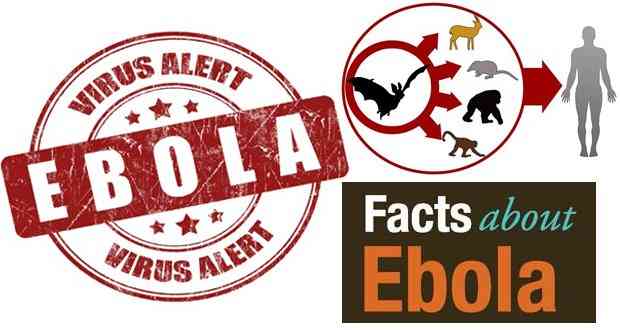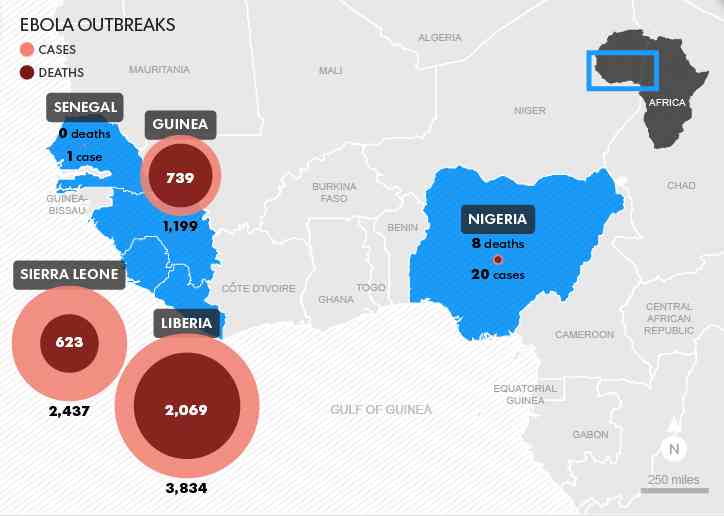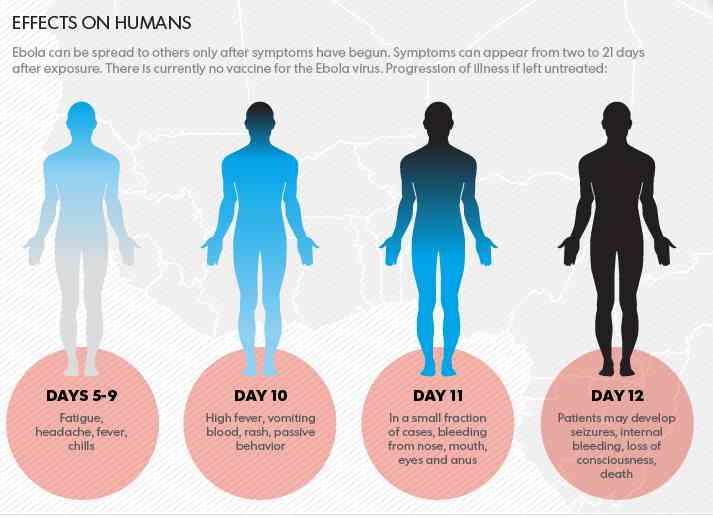The first person to be diagnosed by Ebola in the US was confirmed last week and on Wednesday, the patient in Dallas, Texas, died. The hospital officials said, “It is with profound sadness and heartfelt disappointment that we must inform you of the death of Thomas Eric Duncan this morning at 7:51 a.m. Mr. Duncan succumbed to an insidious disease, Ebola. He fought courageously in this battle.” Last week after Duncan was diagnosis with Ebola, new conversations started about the virus and the effect it has on Americans. The White House tried to assure the Americans by tweeting facts about Ebola to reassure that, “America has the best doctors and public health infrastructure in the world, and we are prepared to respond to Ebola.”
For a detailed breakdown on Ebola virus facts and what’s happening around the world, read on.
What is Ebola virus?
Ebola virus disease,formerly known as Ebola haemorrhagic fever, is a severe and often fatal illness with a death rate of almost 90%. The illness affects human and other primates like monkeys, gorillas and chimpanzees.
Where did it start?
Africa is experiencing a major outbreak of the virus (first cases reported in March 2014). This is the largest outbreak of the virus since it was first discovered in 1976. Over 3000 people have died from Ebola and more than 6500 have been diagnosed with the virus in Liberia, Guinea, Nigeria and Sierra Leone.
How is Ebola transmitted? Is it contagious?
Ebola is only contagious if the virus is active in the person and is showing symptoms. According to the CDC, Ebola is spread through direct contact with the blood or bodily fluids of an infected person, with infected animals or with objects that have been contaminated like needles and syringes.
What are the symptoms of the virus?
According to WHO, the incubation period that is the time interval from infection of the virus to the onset of symptoms is 2 to 21 days. The initial symptoms include fever, fatigue, muscle pain, headache and sore throat. The second stage symptoms include vomiting, diarrhea, rash along with symptoms of impaired kidney and liver function. In some cases, internal and external bleeding might occur (like bleeding gums, blood in stools etc.)
Is there a vaccine?
Presently there is no licensed medicine or vaccine for Ebola virus disease, but according to WHO several products are under development.
How is Ebola treated?
The symptoms of Ebola are treated as they come up. A patient’s recovery depends upon the strength of his/ her immune system. General treatment involves injecting more fluids and electrolytes in the body along with the treatment of other infections that may arise.
How can it be prevented?
The natural host of the virus is believed to be fruit bat. In the current outbreak, most of the cases that have been reported are due to human-to-human transmission wherein there has been a direct contact with bodily fluids, secretions or broken skin of an infected person.
When should someone seek medical care?
If a person had been in an area known to be infected by the virus or is in contact with the person suspected to have Ebola and they begin to have symptoms, they should seek medical care immediately.








Thanks for the great article. I have been reading news about Ebola from quiet a while however, never conducted a research to get down to the main cause.
Very informational and useful post to everyone Manini. Ebola seems to be a greatest threat to the mankind!
It is sad that so many people fighting to contain the outbreak have to also fight ignorance and rumours in those countries.